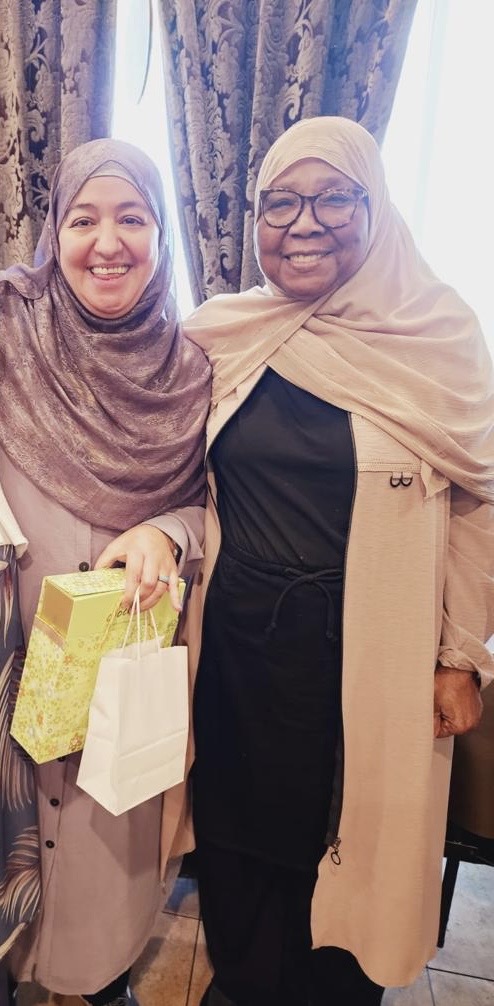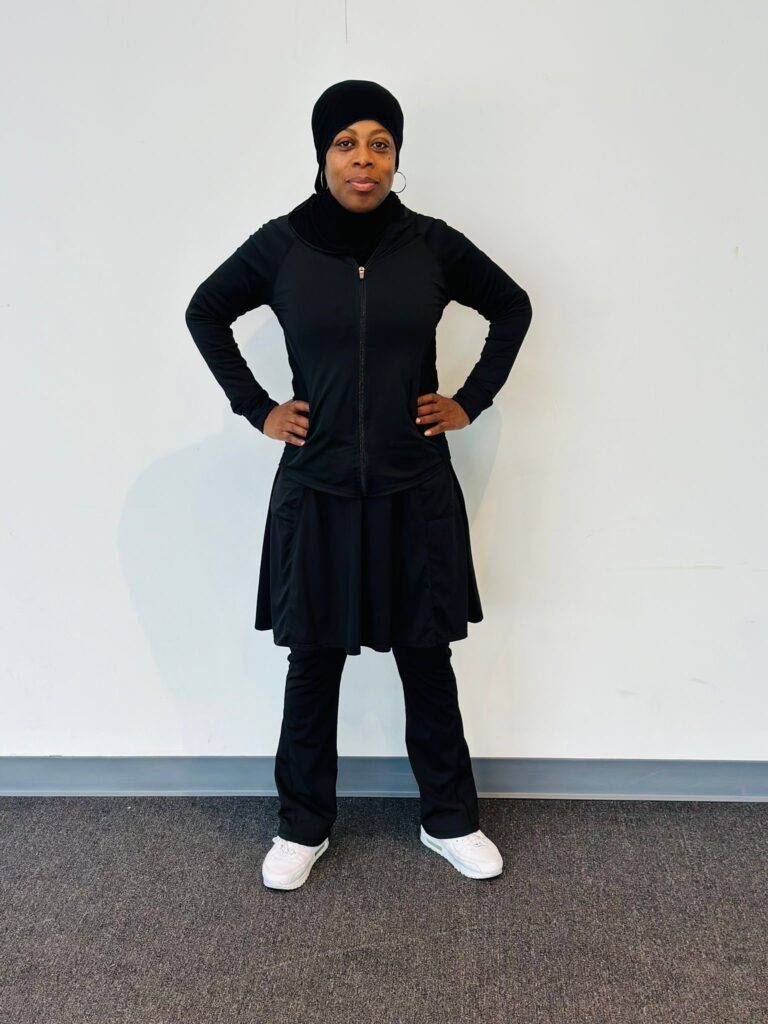The Need for Muslim Senior Day Centers
By Heather Lee
July/Aug 2024

In Islam, adult children and family members are considered responsible for providing support and caring for their aging loved ones, especially parents. For some families, this may be financially or otherwise difficult to sustain. Perhaps the Muslim senior has no children, and for many others, support may be physically impossible due to living far away. What then becomes of the aging Muslim population, and how are North America’s Muslim communities ensuring inclusive programs, systems of support for them and caretakers, as well as planning post-retirement activities?
The community must care for the elderly not just because they need extra help, but because many of them have made immense sacrifices in building our community here. From the first halal meat shops, mosques and weekend schools, they have poured sweat, tears, money and time into the amenities we enjoy today. Many also have invaluable experience and wisdom to share. Muslims must remember, “Your Lord has decreed that you worship none but Him, and that you be kind to parents. Whether one or both of them attain old age in your life, say not to them a word of contempt, nor repel them, but address them in terms of honor” (17:23).
How Old is the Muslim Population?
Various factors make it a little tricky to answer this question. The defining age of becoming a senior can vary, depending on what you’re looking for, but it’s often considered to be 65, when one qualifies for Medicare. According to the 2017 Pew Research report, out of the 3.45 million self-identifying Muslims living in the U.S, 59% are between 18-39 and 12% are 55+ years old. It is estimated that by 2040, Muslims will be this country’s second largest religious group and will reach 8.1 million by 2050. This means that by 2050, Muslims within that age bracket currently 29 years of age and older will have reached the age of qualifying as senior in society.
In Canada, Muslims are the fastest growing minority group. According to research by Adelfettah Elkchirid and Jahan Zeb (“Muslim seniors face aging challenges,” The Hamilton Spectator, March 11, 2020) Muslims represent 3.2% of Canada’s total population. Further research shows that the Muslim seniors are 5.6% of that total. This raises the question: Are Muslim communities meeting the needs of their seniors?
Muslim Senior Day Centers: A Vision
Establishing Muslim senior day centers could provide a framework for seniors to engage in daily social interactions, activities and classes, as well as provide fitness opportunities. Some organizations and initiatives already exist but aren’t necessarily available for daily engagements and support for Muslim seniors and their families.
Emmanuelle M., a certified psychotherapist and spiritual care provider in Toronto, told Islamic Horizons, “Specifically in Toronto there is a need for an adult senior center for Muslims. I see individual and nonprofit organizations trying to support with what they can, but there’s no proper facility. I don’t even see people talking about this topic and educating the community.”
Senior day centers do exist both in the U.S. and Canada, but they are not Muslim-friendly. For example, most likely they don’t observe dietary restrictions or social boundaries between men and women. There may be language barriers for some seniors, and these facilities may also not be a very conducive place to offer salah on time.
“We need a space that perhaps has separate programs or timings for the senior women and men,” said Janan Webb, founder of “The Happy Seniors” in Houston. She founded this organization after recognizing the increasing and urgent need for supporting the community’s many seniors and their families.
Maintaining Independence

While everyone should try to stay physically fit, maintaining a fitness routine that challenges the body and builds muscle strength can help seniors live healthy and physically active lives. A term fo this viewpoint was coined in the 1950s popularized by Dr. John Row and Robert Kahn, Ph.D. known as successful aging (“Successful Aging,” Dell, 1999). Daily activities that nurture decision-making skills, independence through fitness routines and social interactions are necessary for successful aging.
Muslim senior centers could provide working out as part of the facility amenities. Gender-separate and private exercise rooms and classes might reduce hesitation for seniors to join. When they see others doing simple workouts in ethnic attire or more modest workout wear, it can be less intimidating than a traditional gym environment.
Founder of the Houston-based women’s gym, ADF Stayfit, Tahira Osama shared her experience working with Muslim seniors saying, “It’s so important for seniors to work out to maintain their ability to move and socialize. In my experience working with Muslim seniors, they build confidence when they learn that they can do modified workouts, and this allows them to keep trying.”
Caregivers Benefit Too
Aging Muslim seniors’ caregivers shared their challenges as well and the relief they feel a Muslim senior day center could bring not just for them, but also for Muslims seniors as well. “My mother has lived with me for a few years since my father died. I feel bad leaving her home alone all week while my husband and I work, and our children attend school. If she had a place to socialize with friends that I would trust to honor her Islamic values, I think this would be a huge benefit for her.”
“Isolation can be one of the worst situations that seniors in the community are facing,” said Faten Abdallah (coordinator, The Happy Seniors). She organizes meal distribution for homebound seniors who can sometimes experience isolation for multiple days. “Dealing with contacting seniors to drop off food, sometimes, breaks my heart. When I ask them how they are doing and if I can drop off food, they often say, ‘Sister I have food, but I’m alone.’ We are trying as a community, but we could do more.”
Webb wishes they could build a Muslim senior center based on an existing model developed in Australia. “A friend of mine went to Australia and brought photos of Muslim seniors.” Webb said. “They have everything they need, because it is paid for through government programs. It’s coming along where they have daily activities and weekly trips. This is what I hope we could end up doing and have a place for that to happen.”
ISNA Canada Steps Up
Some communities have recognized and built programs addressing Muslim seniors’ needs. ISNA Canada organizes monthly socials with a brunch and a variety of speakers, such as educational professionals, physiotherapists and courses on technology teaching safety online. Their other programs have included field trips to the Planetarium and Niagara Falls. They even host a board game night and held a four-week fitness program, “Healthy Active Living Workshop,” that included bruise care.
The ISNA Canada seniors’ program has a structured team; Fadime Salman, (program coordinator, ISNA Canada), Ramy Sadek (marketing and communications lead, ISNA Canada), and Sandleen Azam (community engagement lead, ISNA Canada). “How do we serve our Muslim community is something we always ask ourselves. Seniors are very important to us,” said Fadime Salman in an interview with Islamic Horizons. “We receive program feedback from our seniors and meet people where they are.”
“Our seniors program fosters lasting community engagement as seniors become active participants in our community, and even volunteer alongside us,” added the team collectively.
They shared a beautiful story about how two seniors who had begun attending the ISNA Canada senior programs realized that they had both lived in Pakistan, worked for the same company at the same time together, and yet had never met or became friends until meeting at the Mississauga senior program. The program has built a space of friendship and a sense of belonging.
Salman suggested that when starting a senior program, an organization must consider creating an environment where seniors don’t feel like they are being taught, but where they can interact with other community members; offer volunteer orientation to teach the importance and respect of serving seniors; have accessible space to accommodate their needs so they feel comfortable and welcomed; be open to receiving feedback and value and build on it; and, finally, grow with them.
More Work to Do
While ISNA Canada and other organizations are filling a void, few communities offer regular senior programs. They may be overlooked because of assumptions. Many mosques may not have surplus funds and assume that seniors are living at home with their adult children, who are meeting their social, physical and mental needs.
However, this is not always true. Many seniors’ adult children may live far away or may want to socialize beyond their families but don’t know where to begin. Due to lack of resources, some mosques and Islamic centers often prioritize other programs. Inadequate attention can leave seniors feeling uninvited, unvalued, unincluded and unsupported.
“We have to take care of our seniors,” Abdullah chimed in. “Our kids and grandchildren need to be aware [of their obligation] to take care of the elderly. If we take care of our aging parents and relatives now, we are doing what we are supposed to do and building a future for ourselves.”
Heather Lee, graduating in 2024 from Ribaat Academic Institute with a Ribaat Teacher Certification and is currently pursuing an MA in Islamic Studies with the Bayan Islamic Graduate School.
Tell us what you thought by joining our Facebook community. You can also send comments and story pitches to horizons@isna.net. Islamic Horizons does not publish unsolicited material.
